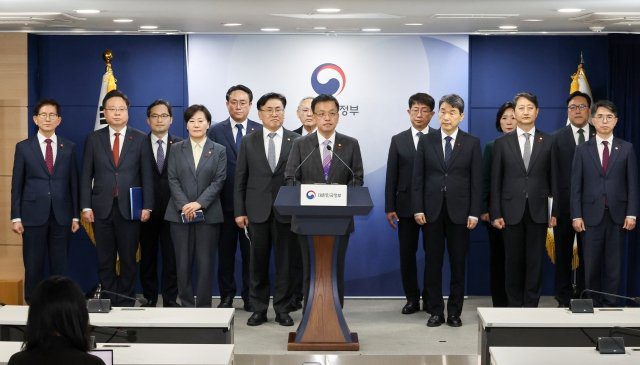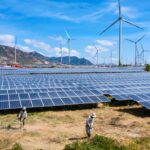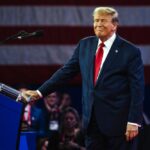Seoul – With the fate of embattled President Yoon Seok-yeol likely to hang in the balance for longer than expected, concerns are growing over pending economic measures that are needed to speed up the country’s slowing growth.
Han Dong-hoon, leader of the ruling People’s Power Party, stressed on Sunday that he would push for the president’s resignation after a parliamentary impeachment vote failed on Saturday. The main opposition Democratic Party has called for Yoon to step down immediately and has threatened to submit weekly motions to oust him.
Pending economic issues at a critical juncture have been put aside, including deadlocked negotiations over a 2025 national budget plan worth 677 trillion won ($475.4 billion) and the upcoming announcement of the government’s economic policy direction, which will be a key factor for South Korean industry. guidelines.
South Korean Prime Minister Han Deok-soo on Sunday pleaded for a swift handling of budget proposals while vowing to set up an emergency system to closely monitor financial and currency markets.
“In order for the affairs of the country to function normally even in an emergency, the passage of the budget plan submitted by the government and its supporting bills is more necessary than anything else,” he said.
“Only when the budget is finalized as soon as possible and all departments are prepared to implement it on time can the economy and people’s livelihood be restored in time during difficult times.”
Finance Minister Choi Sang-mok also issued a separate statement after a meeting with ministers earlier in the day, reiterating that “South Korea’s economic system is solid and the government’s emergency measures are working effectively.”
“The top priority is external credibility,” Cui stressed, adding that the government plans to engage directly with international credit rating agencies, send financial cooperation delegations to major global organizations and countries, and hold briefings for overseas investors.
Stock and currency markets, forward-looking barometers of economic conditions, have taken a hit last week.
Given that China is currently facing downward pressures such as a strong U.S. dollar, using appropriate policy tools to stabilize financial markets will be a key task to prevent volatility from spreading to the real economy.
“Breaking the vicious cycle is a key issue. Lee So-ra, a researcher at the Korea Institute of Industrial Economics and Trade, said: “The negative impact of political turmoil on financial markets may lead to contraction in consumption and delays in investment, which will have a negative impact on the real economy. chain reaction.”
Market bystanders predict the country’s stock market will turn downward at the end of the year as political uncertainty weighs on the market, which has already been hurt by declining competitiveness in the country’s main export industries such as semiconductors and secondary batteries. pressure.
The benchmark Kospi index fell 1.78% in intraday trade on Friday, slipping below the psychologically important 2,400-point mark, while the secondary Kosdaq touched its lowest level in more than four years before recovering losses.
The Korean won is expected to depreciate further, but to a limited extent.
The South Korean won hit a two-year low of 1,430 won against the U.S. dollar after Yoon declared martial law on Tuesday.
“The won will remain low and show high volatility until political uncertainty eases,” said Lee Joo-won, an analyst at Dasin Securities.
Gloomy export prospects next year are another drag on the economy.
Bank of Korea Governor Lee Chang-dy specifically pointed out that U.S. President-elect Trump’s threat of tariff increases and the increasing competitiveness of Chinese exporters were the reasons for the Bank of Korea’s decision to lower its export forecast for next year. The central bank also lowered its economic growth forecast for this year and next year to 2.2% and 1.9% respectively.
Pessimistic forecasts from global economic institutions and investment banks indicate that 1% economic growth may become South Korea’s new normal.
On Friday, the ASEAN+3 Macroeconomic Research Office predicted that South Korea’s economy will grow by 1.9% next year. The estimate does not take into account variables involving this week’s impeachment proceedings and martial law.
Major investment banks have been lowering their forecasts. Citigroup lowered its 2025 GDP growth forecast for South Korea from 1.8% to 1.6%. UBS, Nomura and JP Morgan cut their forecasts to 1.9%, 1.7% and 1.7% respectively.









